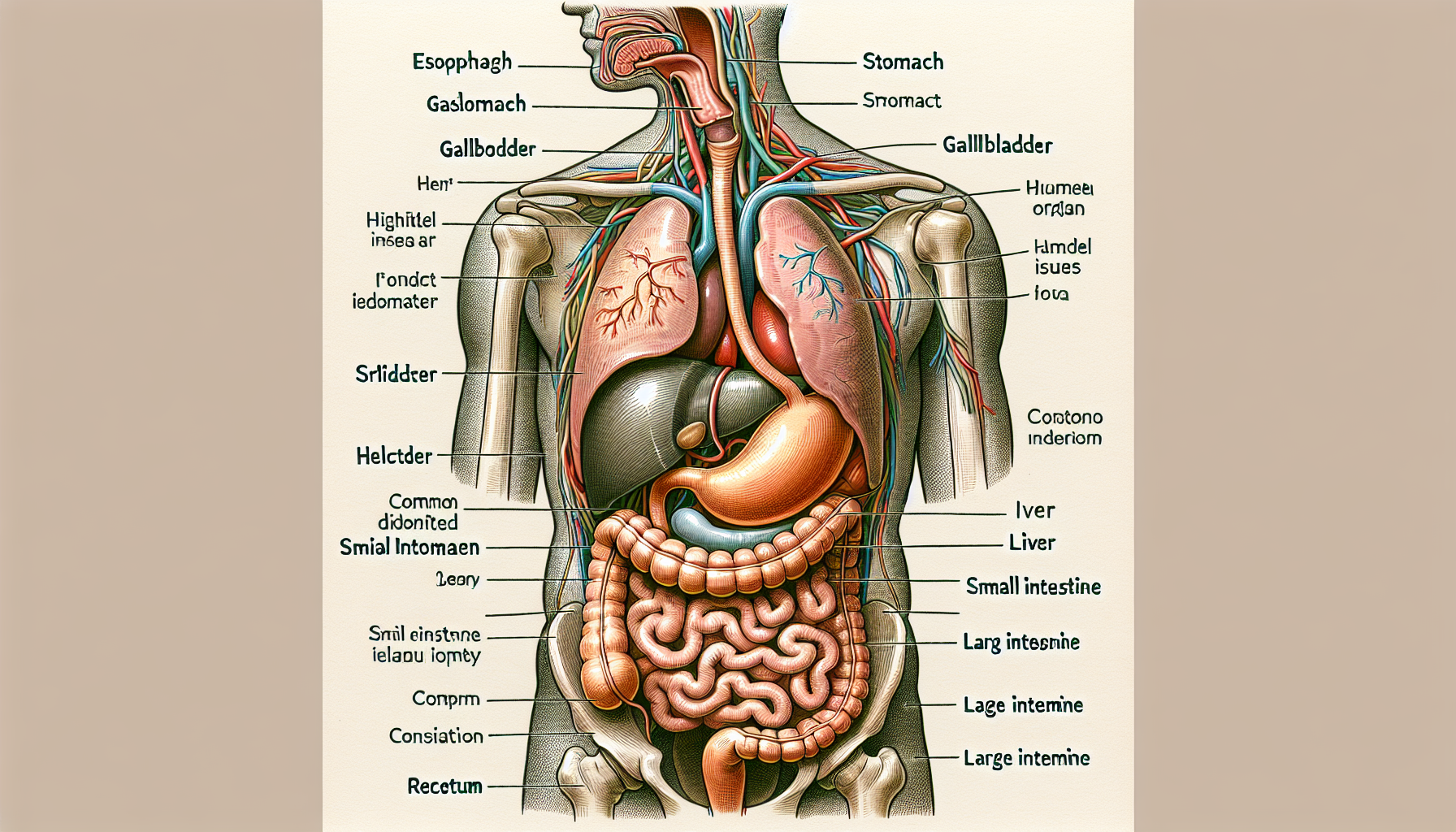Digestive disorders encompass a broad range of conditions that affect the gastrointestinal (GI) tract. These disorders can range from mild to severe and can significantly impact an individual’s quality of life. Understanding the common digestive disorders and their symptoms is crucial for early detection and effective management.
Understanding Digestive Disorders
The digestive system is a complex network that involves the processing of food from ingestion to digestion, absorption of nutrients, and elimination of waste. When this system is disrupted by disease or disorder, it can lead to a variety of symptoms that can be uncomfortable, debilitating, and sometimes indicative of a serious underlying health issue.
Gastroesophageal Reflux Disease (GERD)
GERD is a chronic condition where stomach acid flows back into the esophagus, leading to symptoms like heartburn, chest pain, and difficulty swallowing. It’s important to manage GERD effectively to prevent complications such as esophageal damage. For more information on managing this condition, consider reading about dietary adjustments for acid reflux.
Irritable Bowel Syndrome (IBS)
IBS is a common disorder affecting the large intestine, characterized by symptoms such as cramping, abdominal pain, bloating, gas, and changes in bowel habits. While the exact cause of IBS is unknown, it can be managed through dietary changes and stress management. Understanding the role of diet in managing IBS can be beneficial for those affected.
Inflammatory Bowel Disease (IBD)
IBD includes conditions like Crohn’s disease and ulcerative colitis, which involve chronic inflammation of the GI tract. Symptoms may include severe diarrhea, fatigue, abdominal pain, and weight loss. It’s essential to seek medical advice for proper treatment and to explore possible dietary roles in managing Crohn’s disease.
Celiac Disease
Celiac disease is an autoimmune disorder triggered by gluten, a protein found in wheat, barley, and rye. Symptoms include diarrhea, bloating, gas, fatigue, and even damage to the small intestine. Adhering to a strict gluten-free diet is critical for managing celiac disease.
Recognizing Symptoms and Seeking Diagnosis
Early recognition of digestive disorder symptoms is key to receiving a timely diagnosis and appropriate treatment. Common symptoms to be aware of include:
- Persistent abdominal pain or discomfort
- Changes in bowel habits (constipation or diarrhea)
- Unexplained weight loss
- Blood in the stool
- Severe, persistent heartburn or indigestion
- Difficulty swallowing
If you experience any of these symptoms, it is important to consult with a healthcare professional. They may recommend diagnostic tests such as endoscopy, colonoscopy, or imaging studies to determine the cause of your symptoms.
Supportive Treatments and Therapies
Treatment for digestive disorders often includes a combination of medication, lifestyle adjustments, and sometimes surgery. In addition to conventional treatments, exploring the benefits of natural supplements for digestive health can complement your management plan.
Medications
Medications can range from antacids to reduce stomach acid, anti-inflammatory drugs for IBD, or antibiotics for infections. For instance, the treatment of H. pylori, a common bacterium associated with peptic ulcers, typically requires a combination of antibiotics.
Diet and Lifestyle
Diet plays a crucial role in managing digestive disorders. This includes identifying and avoiding trigger foods, increasing fiber intake, and maintaining hydration. For those interested in the impact of specific dietary components, resources on the role of dietary fiber in digestive health offer valuable insights.
Alternative Therapies
Some individuals find relief through alternative therapies such as acupuncture, yoga, or massage. The calming effects of these practices can help alleviate stress, which is often a contributor to digestive symptoms.
CBD and Digestive Health
Cannabidiol (CBD) has gained attention for its potential to support digestive health by reducing inflammation and promoting gut homeostasis. To understand more about CBD and its benefits, a visit to SuperGreatCBD can provide a wealth of knowledge.
External Resources for Further Information
For those looking to further their understanding of digestive disorders, there are niche resources that delve into the complexities of these conditions:
- The International Foundation for Gastrointestinal Disorders offers comprehensive information on various GI disorders, including the latest research and treatment options.
- The American College of Gastroenterology provides patient education materials, guidelines, and a directory of gastroenterologists for those seeking specialized care.
Conclusion
Digestive disorders can be complex and multifaceted, but understanding their symptoms and treatment options is the first step toward improved health. By recognizing the early signs, consulting with healthcare professionals, and utilizing supportive treatments and therapies, individuals can effectively manage their conditions. Remember to leverage external resources and explore all avenues of treatment, including diet, lifestyle changes, and emerging therapies like CBD, to find the best approach for your digestive health.



